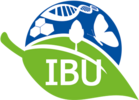Contact
Head of working group
Address
AG Hydrogeology and Landscape Hydrology
IBU, Fk. V, Building A1
Carl von Ossietzky Universität
D-26111 Oldenburg
Office
Renate Kettmann
Room: A1 1-130
Phone: ++49 (0) 441 / 798 - 4236
Fax: ++49 (0) 441 / 798 -3769
renate.kettmann@uol.de
WAKOS
Water at the coasts of East Frisia: Base for customized climate services for adaptation / Subproject WAKOS-E: Freshwater on the islands and regional adaptation strategies
Project summary
Water and related natural hazards present major challenges in the region "Ems estuary and its offshore islands", both in the short term in risk management and in the long term in precautionary measures for adaptation to climate change. In this context, processes such as the expected rise in mean sea level, storm surges, heavy rainfall events, drainage, or groundwater recharge and saltwater intrusion represent important factors, understanding of which is a prerequisite for building up decision-relevant knowledge on climate change in the region.
The aim of the project is to build bridges between the different processes and factors as well as their interdependencies and interactions, and to provide knowledge for strategies that reduce the risks of cascading extreme events such as heavy rainfall, floods, or storms in the region ("Climate Proofing").
The subproject WAKOS-E "Freshwater on the islands and regional adaptive capacity", with its
two institutes involved, has two major objectives. Firstly, subproject E-1, carried out by the working group Hydrogeology and Landscape Hydrology, University of Oldenburg, investigates climate-induced changes in freshwater lenses below barrier islands and the expected consequences for the local water supply, using Norderney Island as an example. Both "creeping" groundwater salinization as a result of sea level rise as well as the potentially very sudden salinization due to extreme events such as storm surges in combination with dune breaches and floods are addressed. A quantification of the expected changes in groundwater salinity and freshwater volumes is performed using a numerical model (SEAWAT) of the island of Norderney, which is supported by generic models for the systematic analysis of a large number of possible islands for better transferability. Model boundary conditions include the expected sea level rise depending on the climate change scenarios as well as the results of the SIMULAT model calculations for the determination of groundwater recharge rates for the considered climate scenarios, which are realized in other subprojects of WAKOS.
Secondly, subproject E-2, carried out by the working group Ecologic Economy at the University of Oldenburg, aims to identify concepts for the survey of regional adaptation capacity and adaptation needs, which appear to be applicable and acceptable in the model region. In doing so, new adaptation challenges in climate change-induced coastal protection are to be surveyed, which are to be met with new governance strategies. Existing impact relationships as well as inherent characteristics of societal change processes are to be identified and described. In addition, the empowerment and enhancement of societal adaptive capacity or resilience as a whole plays a supporting role.

